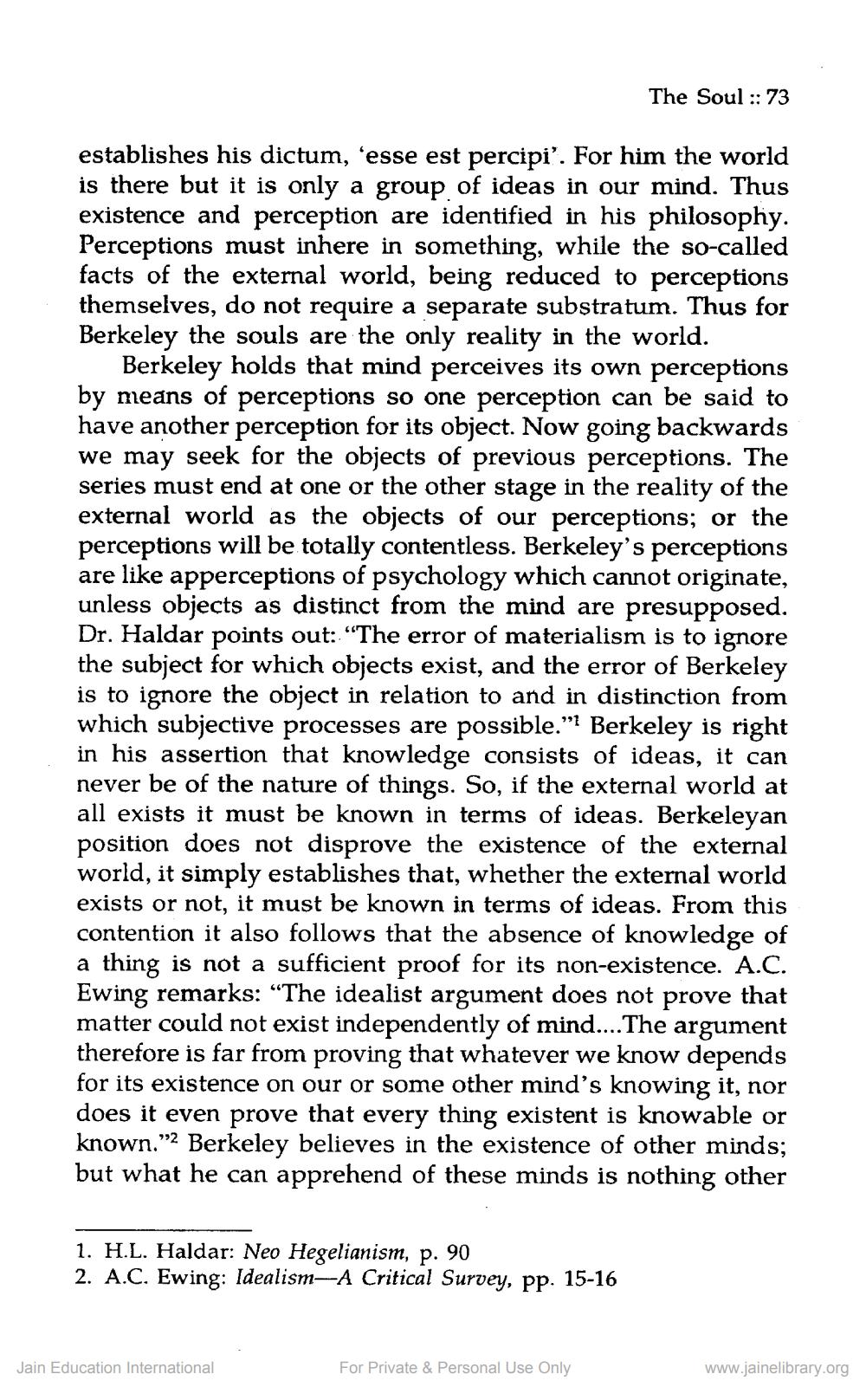________________
The Soul :: 73
establishes his dictum, 'esse est percipi'. For him the world is there but it is only a group of ideas in our mind. Thus existence and perception are identified in his philosophy. Perceptions must inhere in something, while the so-called facts of the external world, being reduced to perceptions themselves, do not require a separate substratum. Thus for Berkeley the souls are the only reality in the world.
Berkeley holds that mind perceives its own perceptions by means of perceptions so one perception can be said to have another perception for its object. Now going backwards we may seek for the objects of previous perceptions. The series must end at one or the other stage in the reality of the external world as the objects of our perceptions; or the perceptions will be totally contentless. Berkeley's perceptions are like apperceptions of psychology which cannot originate, unless objects as distinct from the mind are presupposed. Dr. Haldar points out: “The error of materialism is to ignore the subject for which objects exist, and the error of Berkeley is to ignore the object in relation to and in distinction from which subjective processes are possible.”? Berkeley is right in his assertion that knowledge consists of ideas, it can never be of the nature of things. So, if the external world at all exists it must be known in terms of ideas. Berkeleyan position does not disprove the existence of the external world, it simply establishes that, whether the external world exists or not, it must be known in terms of ideas. From this contention it also follows that the absence of knowledge of a thing is not a sufficient proof for its non-existence. A.C. Ewing remarks: “The idealist argument does not prove that matter could not exist independently of mind.... The argument therefore is far from proving that whatever we know depends for its existence on our or some other mind's knowing it, nor does it even prove that every thing existent is knowable or known."2 Berkeley believes in the existence of other minds; but what he can apprehend of these minds is nothing other
1. H.L. Haldar: Neo Hegelianism, p. 90 2. A.C. Ewing: Idealism-A Critical Survey, pp. 15-16
Jain Education International
For Private & Personal Use Only
www.jainelibrary.org




